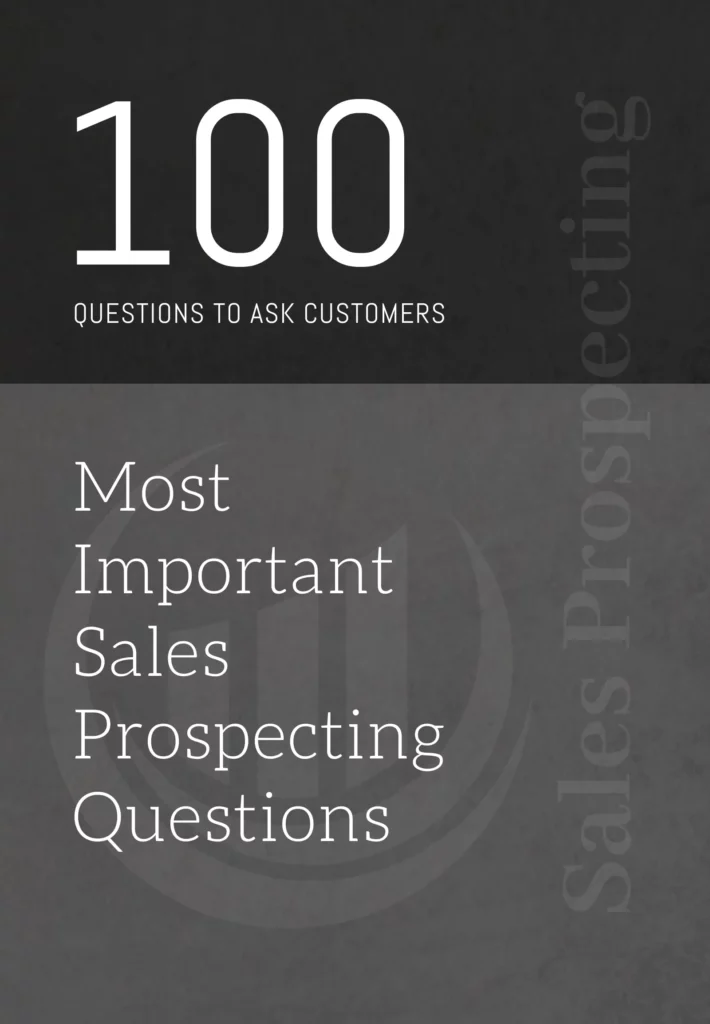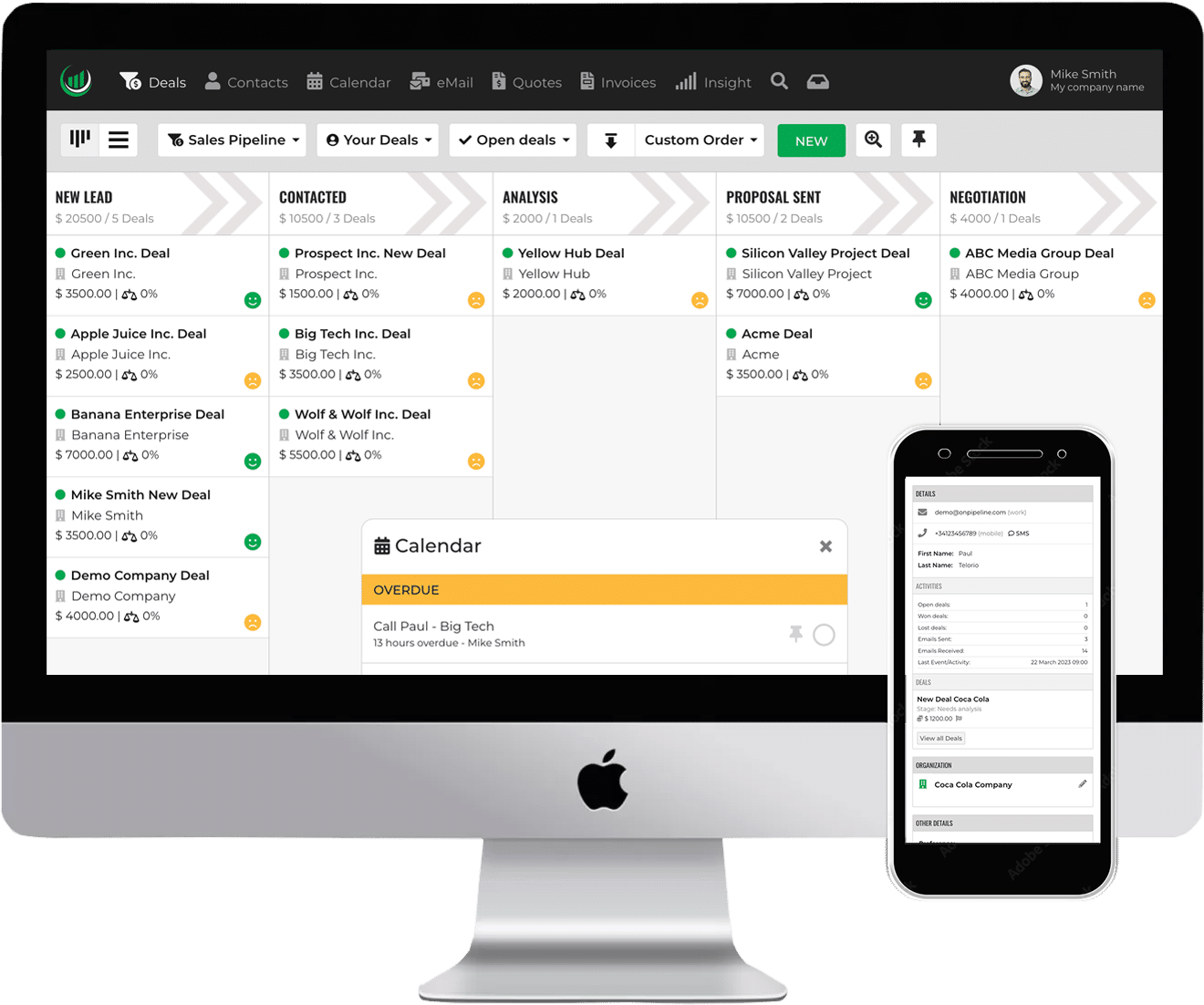There are many ways to find new customers, but asking questions is very effective. Salespeople can learn about the customer’s needs and challenges by asking questions. Then, they can position their product or service as the best solution.
In this article, we will talk about important questions for salespeople to ask when prospecting. We will also provide tips on how to ask these questions effectively.
Types of Prospecting Questions
There are three main types of sales prospecting questions:
- General questions are used to understand the customer’s business and challenges.
- Specific questions about the industry help us understand the customer’s challenges in more detail.
- Pain point questions help find the customer’s biggest problems.
How to Ask Sales Prospecting Questions
When asking sales prospecting questions, it is important to be:
- Open-ended questions help the customer talk more and share more information.
- Only ask questions that matter to the potential customer’s needs and challenges.
- Avoid asking vague or general questions.
- Be respectful of the potential customer’s time and attention.
By using these tips, you can ask questions that will help you find potential customers.
Top 100 Sales Prospecting Questions
These questions help you through the sales process, from building rapport to closing the deal. To make these questions more effective, customize them for your context and each prospect’s unique needs.
Relationship Building (10 Questions)
These questions aim to establish rapport and build a connection with the person you’re speaking to. They are designed to show genuine interest and start a conversation on a personal or professional level.
- What inspired you to get into your line of work?
- How has your week been so far?
- I noticed [something about their company or personal interest], can you tell me more about that?
- How do you typically spend your weekends?
- What’s the most exciting project you’re working on right now?
- How did you first hear about our company/product?
- What’s something new you’ve recently learned in your industry?
- Have you attended any interesting events or webinars lately?
- What’s a common misconception people have about your job?
- Can you share a success story from your career that you’re particularly proud of?
Needs Analysis (20 Questions)
These questions delve into understanding the challenges, priorities, goals, and decision-making processes of the prospect. They help uncover specific needs and requirements that your solution could potentially address.
- What are the main challenges you’re facing in your role/business?
- How are these challenges impacting your team/company?
- What solutions have you tried so far?
- What did you like or dislike about those solutions?
- What are your top priorities for this quarter/year?
- How does this challenge fit into your overall business goals?
- What’s your ideal outcome in addressing this challenge?
- What features or capabilities are most important to you in a solution?
- How do you measure success for a project like this?
- What’s your timeline for implementing a solution?
- Who else is involved in the decision-making process?
- How does your budget allocation look for this type of solution?
- Are there any regulatory or compliance factors we should consider?
- What would the perfect solution look like for you?
- How would this solution impact your daily operations?
- What are your long-term goals related to this issue?
- Can you describe your decision-making process for purchases?
- What concerns do you have about implementing a new solution?
- Who will be the primary users of this solution in your organization?
- How important is scalability in a solution for you?
Qualification (20 Questions)
Qualification questions help determine if the prospect is a good fit for your product or service. They focus on understanding the prospect’s role, budget, urgency, decision-making process, and any potential obstacles to moving forward.
- Can you tell me more about your role in the decision-making process?
- What is your budget for this project?
- How urgently do you need to implement a solution?
- Are there any specific features you cannot do without?
- How many people in your organization would use our solution?
- Have you allocated resources for training and implementation?
- What other solutions are you currently considering?
- How does our solution compare with others you’ve looked at?
- Are there any internal obstacles to implementing a new solution?
- What’s your process for evaluating and selecting vendors?
- How have past decisions been made regarding similar purchases?
- Who are the key stakeholders involved in this decision?
- What’s the biggest factor that will influence your decision?
- How does this project align with your overall business strategy?
- What are your expectations regarding support and service?
- Can you provide details on past experiences with similar products?
- How does this investment fit into your overall budget?
- What’s your timeline for making a decision?
- Are there any specific compliance or security requirements?
- How would you describe a successful vendor relationship?
Company/Product Fit (20 Questions)
These questions focus on how well your product or service aligns with the prospect’s needs, workflow, and existing systems. They explore the potential benefits and any concerns the prospect may have about integrating your solution.
- How do you see our product/service fitting into your workflow?
- What aspects of our solution are most appealing to you?
- Are there any features you feel are missing in our offering?
- How do you envision our solution improving your daily operations?
- Have you used similar products or services in the past?
- What specific results are you hoping to achieve with our solution?
- How do you plan to measure the ROI of our solution?
- What do you think about our pricing model?
- How important is user experience in your decision-making?
- Can our solution integrate with your existing tools or systems?
- What kind of support and training does your team require?
- How do you foresee our solution growing with your business?
- What feedback have you received from your team about our product?
- Are there any concerns about compatibility or integration?
- How critical is the scalability of the solution for your business?
- In what ways do you think our solution outperforms competitors?
- What is your impression of our company’s reputation and track record?
- How do you view the long-term potential of partnering with us?
- Are there any specific case studies or references you’d like from us?
- How does our solution align with your company’s values and culture?
Closing and Follow-Up (30 Questions)
These questions are aimed at guiding the prospect towards a decision and ensuring a smooth transition to the next steps in the sales process. They address concerns, gather feedback, and offer support to move the conversation towards a successful close.
- What are the next steps you’d like to take from here?
- Is there any additional information you need from us?
- Would you like a detailed proposal or quote for our solution?
- Can we schedule a follow-up meeting to discuss further details?
- Who else from your team should be involved in the next discussion?
- How can we assist in making the decision-making process easier for you?
- Would a customized demo be helpful for your team?
- Are there any concerns or questions I can address right now?
- What would it take for us to move forward with a partnership?
- Would you like to hear about our customer success stories in your industry?
- How can we tailor our solution to better meet your needs?
- Is there a preferred method of communication for our future interactions?
- What feedback can you provide about our sales process so far?
- Are there any legal or procurement processes we should be aware of?
- Can we provide any additional documentation or data?
- Would you be interested in a trial period or pilot program?
- How do you prefer to handle contract and payment terms?
- What obstacles, if any, do you anticipate in the approval process?
- Would you like to visit our facilities or meet more of our team?
- Can we assist in presenting this solution to other decision-makers?
- How can we make this a win-win situation for both of our companies?
- Are there any specific terms or conditions you’d like to negotiate?
- What can we do to ensure a smooth transition or implementation?
- Is there a particular format you prefer for receiving proposals?
- How often would you like updates during the decision-making process?
- Are there any upcoming events or deadlines we should be aware of?
- Would you be open to providing feedback or a testimonial post-implementation?
- What can we do to exceed your expectations in this process?
- How can we best support you post-sale?
- Is there anything else we can do to assist you at this stage?
More Tips for Sales Prospecting
Salespeople can improve their prospecting efforts by asking questions and doing other things. These include:
- Before reaching out to a potential customer, do your research and learn about their business.
- Networking is a great way to find potential customers. Attend industry events and join communities.
- You can connect with potential customers by using social media. It is a powerful tool. Ensure that you have a good social media presence. Engage with your target audience.
- It is crucial to check in with potential customers after contacting them. By showing interest in their business, you show a commitment to helping solve their problems.
By following these tips, you can improve your sales prospecting efforts and identify more qualified leads.



